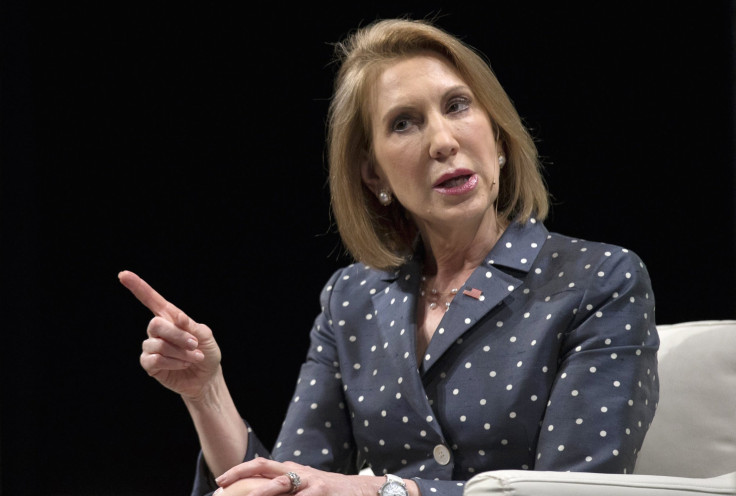Election 2016: Fox News Will Limit First GOP Debate To 10 Candidates; Santorum, Fiorina Might Not Make The Cut

WASHINGTON -- There could be as many as 20 Republican presidential candidates this year, but Fox News is going to permit only the top 10 of them on stage for the first primary debate, the Washington Post reported Wednesday. With such a large field, this is likely to mean that well-known long-shot candidates -- including sitting governors and the only woman running on the Republican side -- won’t get a chance to be on stage.
The 10 participants -- or if there is a tie for 10th place possibly a few more -- will be determined based on the five most recent national polls at the time of the debate, now scheduled for Aug. 6. Fox News, which is hosting the first debate sanctioned by the Republican National Committee, plans to give those not included in the debate a chance for additional airtime, the Washington Post reported. The GOP and the networks partnering with them for debates have been struggling to figure out what to do with such a large field. Their goal is to keep the televised events from getting out of hand while not alienating devoted supporters of some of the lower-profile candidates.
RNC Chairman Reince Priebus endorsed the decision by Fox to limit the debate. “We support and respect the decision Fox has made which will match the greatest number of candidates we have ever had on a debate stage,” he said in a statement. The party is eager to avoid the "clown car" jokes provoked by the overcrowded stages in the 2012 primary debates.
Debates are one of the easiest (and cheapest) ways for candidates with little name recognition to gain momentum and climb up the polls. But if they are barred from even participating, they won't be able to boost their standing through free airtime.
Polls can change a lot between now and the Aug. 6 debate. But as the numbers stand now, several well-known candidates would be left off the debate stage.
A poll by Quinnipiac University conducted last month asked respondents nationally about 14 of the declared or likely candidates -- the most comprehensive recent tally. Using that poll as the standard, a senator, two sitting governors and the only female candidate could be left out of the debate. Sen. Lindsey Graham, Ohio Gov. John Kasich and former Sen. Rick Santorum all tied for 10th place with 2 percent of the vote. Louisiana Gov. Bobby Jindal and former Hewlett-Packard CEO Carly Fiorina each received only 1 percent in the poll. Former Texas Gov. Rick Perry and neurosurgeon Ben Carson (the only African-American in the field) -- are slightly safer, with each taking 3 percent of the support.
Pollsters say that with a field so large, it becomes difficult to get reliable results. Respondents may not pay attention all the way through the reading of a list of 20 names. Asking an open-ended question -- "Which candidate do you support?" -- can leave voters fumbling for just the first name that comes to mind. And with that many candidates in the survey, the difference between 10th and 11th place could be fractions of a percentage point -- well within the margin of error.
A poll by NBC and the Wall Street Journal last month listed only 10 names and didn’t even include some of the likely candidates, including Santorum and Jindal. A Public Policy Polling survey from early May listed just seven likely or declared candidates. Of those polled in that survey, 7 percent opted for “someone else or not sure.”
In theory, given those results, “Someone else or not sure” would end up with a spot on the stage.
UPDATED 7:20 p.m.: This article has been updated to reflect a clarification that a tie for 10th place would result in more than 10 candidates being permitted to participate in the debate.
© Copyright IBTimes 2025. All rights reserved.






















